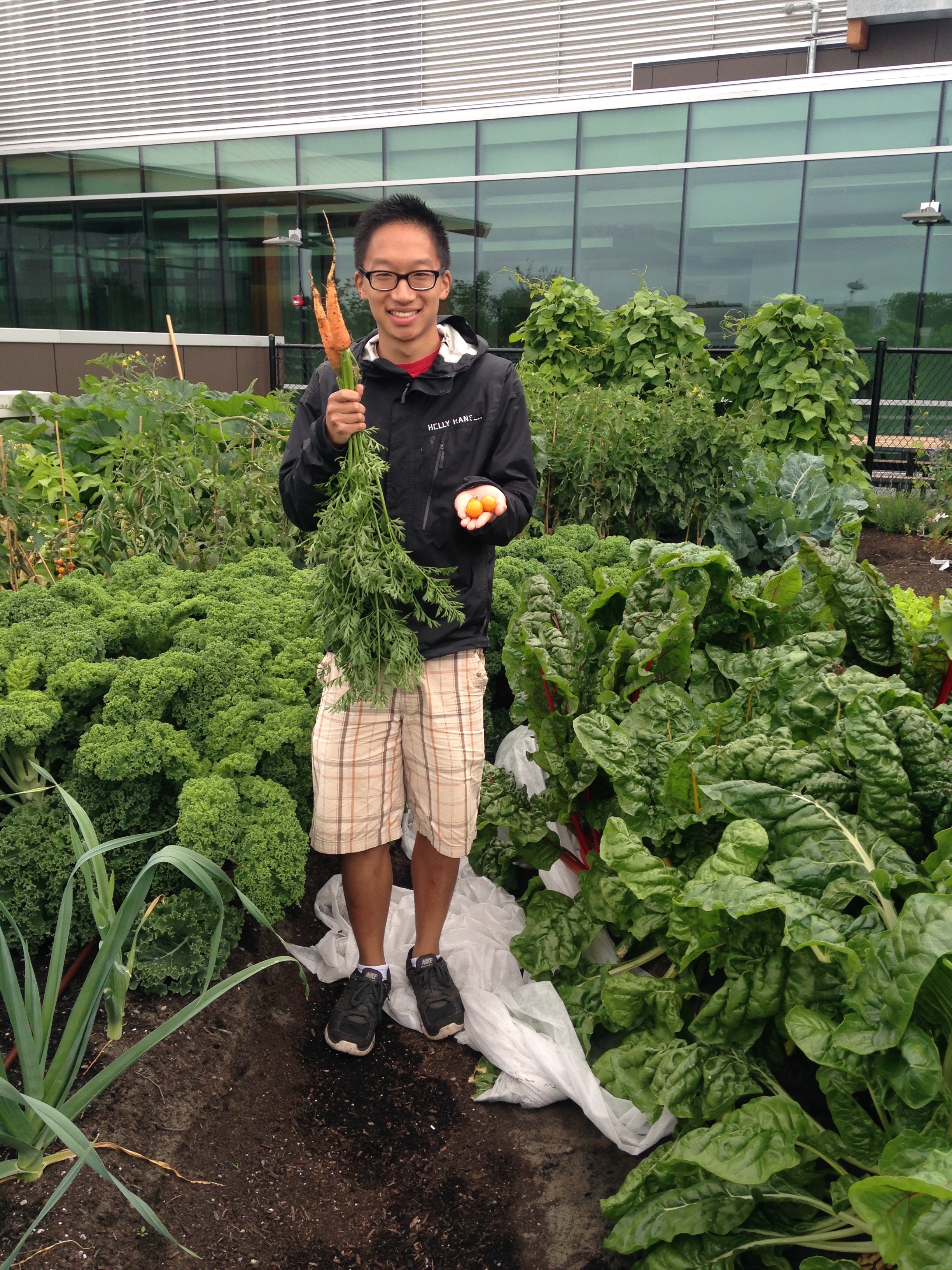If you’ve had a chance to check out the much-anticipated AMS Student Nest, you might know about the rooftop garden on the fourth floor. What you may not know is how this garden came to be.
Brendan Chan, the founder of Roots on the Roof, has been gardening on campus for a year.
“Last year, I got a job at the Orchard Garden, which is currently at Totem Field,” said Chan.
The garden used to be behind H. R. MacMillan Building, but was later moved to Totem Field in 2014 to make room for a private college. It was during that time that AMS approached the Orchard Garden team and offered a spot on the roof of The Nest. Chan saw this as an opportunity to inspire positive change in the food movement on campus, and rounded up some friends to create Roots on the Roof — an urban, organic garden that grows squash, spinach, kale, and much more.
Chan is no stranger to gardening. His passion began in high school, when he was approached by a teacher to volunteer. Chan helped plan and implement 13 garden beds, a greenhouse, and an aquaponics system. Additionally, he interned with Environmental Youth Alliance and planned climate change conferences.
Chan, who is a fifth year student in Land and Food Systems, has many goals for Roots on the Roof, including growing food for events and workshops and using the garden space as an outdoor classroom. Even though it’s an official AMS club, Chan welcomes anyone in the UBC community — from elementary students to residents — to volunteer at the garden, and bring ideas for transforming the space.
“There’s so much untapped potential on campus. It feels so segregated between students, staff, and community. That’s why I love that this can be that space where the whole community can get together,” said Chan.
Chan also hopes that eventually, the club will pursue developing a music garden or storytelling project, where individual stories about food can be shared.
“People have different perspectives on food. It’s not just something to consume. Sometimes, it’s an art piece. Sometimes, it’s a traditional story. Sometimes, it’s linked to a positive or negative experience in the past or present.”
One of Chan’s biggest goals with this project is to address the very real existence of food insecurity on campus.
“Local and organic is great, but it’s unfortunate that only the people who can afford it get to eat healthy and participate in the ‘vote with your dollar’ movement,” he said.
To that end, the food grown by Roots on the Roof can be purchased for less than what it would typically cost at a farmer’s market. Some of the workshops and events will also be free.
Chan defines sustainability as the integration of social, ecological, and economic factors. “I find that sustainability now is used either in an economic sense or ecological sense, and I feel sometimes the social aspect is missing, especially in the food movement.”
Chan’s suggestion for UBC to become more sustainable is for the university to stress the importance of community. “To realize it’s not just students, there’s staff, family, and seniors, there’s a fluid and dynamic community. To realize that people connect to food and sustainability in a diverse number of ways.”
“I can grow food, but growing food to me would be pointless if I didn’t know who I’m giving the food to,” Chan added.
Chan urges students wishing to get involved in their own communities to drop part of their academic mindsets, and focus less on what needs to be fixed and more on what their community actually needs.
“What I love about [Roots on the Roof] is, because it’s not technically tied to a class or to an academic setting, there’s no need to focus on recommendations and frameworks. If we want to do something, we can just go ahead and do it. I think it allows us to address food system issues in a different way.”
To learn more about Roots on the Roof or to get involved with this project, email rootsontheroof@gmail.com, or follow them on Facebook and Instagram.
Post by: Kaavya Lakshmanan, Communications Assistant
